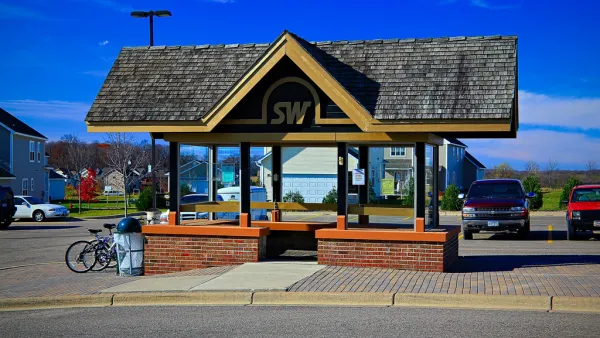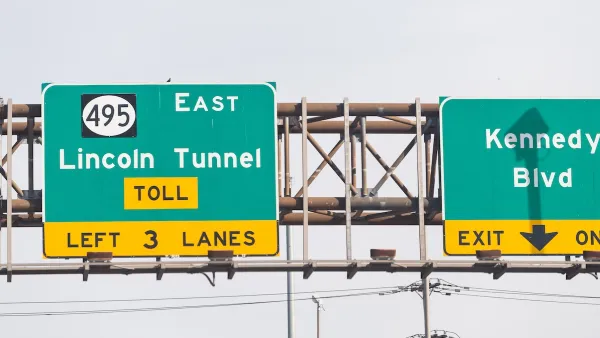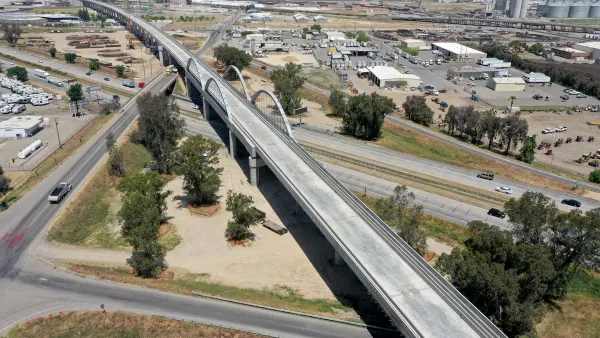A recent opinion piece in The Wall Street Journal on the reasons why "Americans don't want to live in Ray LaHood's car-free utopia" is garnering a lot of attention in the planning and transportation worlds.
In the opinion piece, the Journal's editors slam the ongoing struggle to complete a new multi-year transportation bill as bereft of any "new thinking." They point to estimates that "traffic gridlock costs motorists more than $100 billion a year in delays and wasted gas" as evidence of "inefficient transportation spending" in which 35 cents of every gas tax dollar is "intercepted by the public transit lobby and Congressional earmarkers." According the the editors, who clearly aren't traffic engineers, "This congestion could be alleviated by building more highway lanes where they are most needed and using market-based pricing-such as tolls-for using roads during peak travel times."
In attacking Transportation Secretary Ray LaHood's "strange 'livability' agenda" wherein people can actually complete a daily chore or two without getting in an automobile, they conclude that, "If Congress really wants to enhance the livability of cities and suburbs, it will pass a highway bill that builds more roads."
It's hard to know where to begin in refuting the naive comments made in the article, but Janet Kavinoky at the U.S. Chamber of Commerce's Free Enterprise blog, of all places, takes a shot. Citing their strong belief that "transit is a critical means of addressing congestion and driving economic development in many areas around the country", Kavinoky, speaking on behalf of the Chamber, argues that "the federal government plays an important and necessary role in infrastructure investment."
FULL STORY: Why Your Highway Has Potholes

Analysis: Cybertruck Fatality Rate Far Exceeds That of Ford Pinto
The Tesla Cybertruck was recalled seven times last year.

National Parks Layoffs Will Cause Communities to Lose Billions
Thousands of essential park workers were laid off this week, just before the busy spring break season.

Retro-silient?: America’s First “Eco-burb,” The Woodlands Turns 50
A master-planned community north of Houston offers lessons on green infrastructure and resilient design, but falls short of its founder’s lofty affordability and walkability goals.

Test News Post 1
This is a summary

Analysis: Cybertruck Fatality Rate Far Exceeds That of Ford Pinto
The Tesla Cybertruck was recalled seven times last year.

Test News Headline 46
Test for the image on the front page.
Urban Design for Planners 1: Software Tools
This six-course series explores essential urban design concepts using open source software and equips planners with the tools they need to participate fully in the urban design process.
Planning for Universal Design
Learn the tools for implementing Universal Design in planning regulations.
EMC Planning Group, Inc.
Planetizen
Planetizen
Mpact (formerly Rail~Volution)
Great Falls Development Authority, Inc.
HUDs Office of Policy Development and Research
NYU Wagner Graduate School of Public Service




























